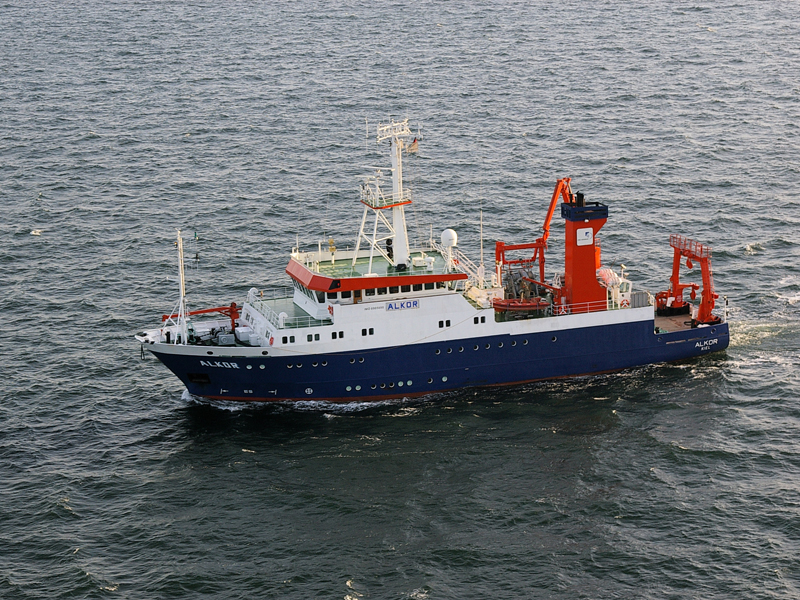ALKOR AL614/1
- Area:
- Baltic Sea
- Time:
-
19.06.2024 - 21.06.2024
- Institution:
- GEOMAR
- Chief scientist:
- Anja Engel
The German-Danish border region, which is characterised by a long coastline, faces significant environmental problems in marine and freshwater ecosystems. Plastics, especially micro- and nanoplastics, have proven to be main pollutants. Around 70% of marine litter in the Baltic Sea is plastic, and 28% of sampled fish contain microplastics, indicating similar levels of pollution in the region's coastal areas. The PlastTrack project was funded by the Interreg6a programme of Germany and Denmark and addresses the transboundary problem of plastic pollution by developing workable solutions for both Denmark and Germany. The cruise AL614-1, which supports the aim of the PlastTrack project to develop and evaluate protocols for sampling and extraction of micro- and nanoplastics (MNP) from water, tested sampling and analysing equipment at sea.
In particular:
1) sampling of MNP (> 15 µm) using a pump and filter system (plastic-free, except PTFE) and sample preparation of the filtrate for onboard enrichment of micro- and nanoplastics (0.2-15 µm) using cross-flow filtration and pressure filtration on sintered filter discs (0.5-15 µm), and
2) onboard analysis of microplastic particles (mainly from catamaran net samples, > 300 µm) using a hyperspectral camera and a miniRaman spectroscope.
In addition, characterisation of organic particles and plankton was conducted using an Underwater Vision Profiler 6 and a PlanktoScope.



